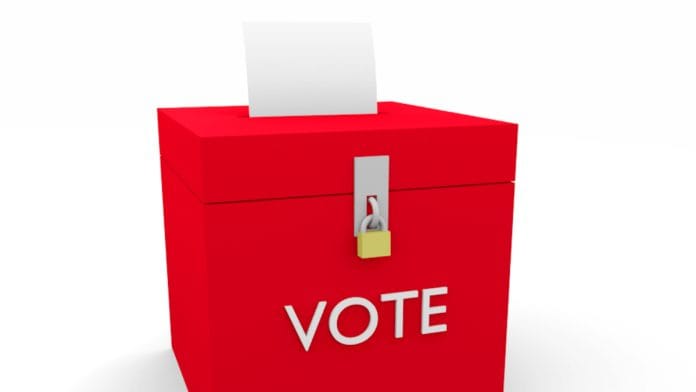Thank you dear subscribers, we are overwhelmed with your response.
Your Turn is a unique section from ThePrint featuring points of view from its subscribers. If you are a subscriber, have a point of view, please send it to us. If not, do subscribe here: https://englishdev.theprint.in/subscribe/
At present, the Modi government is traveling towards simultaneous central and state elections. All opposition parties are opposing. But it is surprising that nobody is talking for a better electoral system!
Our present electoral system is called the “First past the post” (FPTP) system. Democracy means rule by persons chosen by our elected representatives. Electing representatives is the first and most important step of democracy. The most important criteria of a fair election are :- 1. All adult citizens have the right to vote. 2. Each vote carries the same value. The FPTP system passed the first criterion, but miserably fails on the second. Each vote given to the winning candidate gets a value of greater than one, while all votes given to the defeated candidates get a zero value. For example, suppose there are 100 voters and 5 candidates, and the winner gets 21 votes, and rest of the 4 candidates get a total of 79 votes, the value of the votes given to the winner is nearly 5, but the value of the 79 votes of defeated candidates is a big zero! Those 79 votes are totally wasted and have no influence on the composition of the legislative assembly. It is very hard to call the resulting government a truly democratic government. Often the winning party gets 55%of the assembly seats while securing only 35% of the vote share! This defective primitive elections system is a legacy of our past British colonial rule. These elections are very costly for the candidates ,for the political parties and also for the country. A candidate for the parliamentary elections has to spend about 10 to 15 crore rupees to contest. As the legal limit of election expenses is Rs.70 lakh, the amount actually spent above this limit has to be black money! This, the election expenses are a major cause of corruption in India , and of criminalisation of our politics.
Another major defect of this system is of course disproportionality. The first one or two political parties getting relative majority of votes get sort of bonus seats, more than their vote share, while rest of the parties get seats much less than their vote share. For example, Dalits form about 15% of all voters in India, but they are scattered and in no constituency they form a majority. Without reservations , a party representing Dalits will probably get no seats in the parliament. Even with the reservations, dalit candidates belonging to a major party like BJP or congress win, and not of the proper dalit party. This is why Dr. Babasaheb Ambedkar lost in the first election. In future elections, suppose a green party having a 20% voter support scattered all over the country contests, it will possibly get not a single seat in parliament!
In the Proportional Representation (PR) election system, all votes carry equal value and no votes are wasted . Each vote contributes to the composition of the legislative assembly. At least a hundred countries use some variation of the proportional system. The voters vote on the list of candidates submitted by the political party in a multi member constituency . So the candidates do not have to spend anything for the elections. This obviates the compulsive necessity of corruption in politics. And even the parties getting a relatively small percentage of votes get seats in proportion to their votes.
Another plus point of the PR system is that the parliament always completes its 5 year term, there are no midterm elections. Even if the parliament passes a no confidence motion, the parliament has to select a new leader to form a government, in the same session. Otherwise the no confidence motion is nullified. Another merit of the PR system is that it very rarely leads to any party getting a decisive majority in the parliament. Almost always, a coalition of parties is needed to form a government. This leads to a consensus democracy (as opposed to adversarial democracy resulting from the FPTP system), and prevents the so-called “elected autocracy”.
So, I request all citizens to demand a better election system, to achieve a true democracy.
These pieces are being published as they have been received – they have not been edited/fact-checked by ThePrint.


